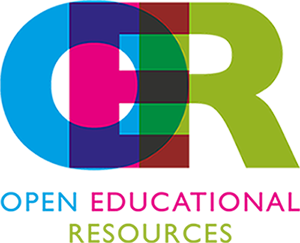Room 4: Using Open Education Instructional Design to Transform the Classroom and the Community
Presenter Biography
Veronica Vold is the Instructional Designer for Open Oregon Educational Resources. Liz Pearce is an LBCC faculty member for Human Development and Family Sciences and is the author of "Contemporary Families: An Equity Lens." Kim Puttman is an adjunct faculty member at Oregon Coast Community College and teaches Sociology, GED, and ESOL.
Location
Room 4: Equity and OER
Start Date
4-28-2023 12:30 PM
End Date
4-28-2023 1:15 PM
Description
In this session, Veronica Vold facilitates a structured conversation with Elizabeth Pearce and Kim Puttman about their open course packs that integrate with their open textbooks, with an emphasis on designing open pedagogy projects as a meaningful equity-minded response to crisis and complexity. We discuss the logistical barriers that challenged us, community connections that surprised us, and the design process that we developed together. Our goal is to showcase how open pedagogy not only allows students to meet key course learning outcomes but to contribute to their communities in profound and transformative ways. To access recommended tools and exemplars to design and develop meaningful open pedagogy opportunities, please see our Presentation Resources linked below.
In her Contemporary Families course, Elizabeth Pearce joined efforts with an Environmental Justice colleague to offer students a chance to propose their own project relating to the open textbook. In her Social Problems course, Kim Puttman invited students to analyze a local social problem of their choice through the creation of a short video interviewing a local community member. As an Open Education Instructional Designer, Veronica Vold collaborated with Liz and Kim to create open practices and tools that center student agency and empowerment.
Open Oregon Educational Resources received Governor's Emergency Education Relief funding to develop openly-licensed, targeted pathway materials with an equity lens for Human Development and Family Studies (HDFS) and Sociology. This project redesigns high-enrollment courses in disciplines that lead to in-demand occupations where high quality openly licensed course materials with an equity lens are not currently available.
By attending this session, attendees will be able to:
- Discuss the value of equity-minded instructional design for open pedagogy projects.
- Recognize the power of community college students in creating and generating academic knowledge.
- Examine open pedagogy as a community intervention in times of crisis and complexity.
- Analyze the complex role of informed consent in designing an open pedagogy project.
- Recommend tools and exemplars to design and develop meaningful open pedagogy opportunities for students.
Room 4: Equity and OER
Zoom Link: https://www.zoomgov.com/j/1608386496?pwd=SXRKYStSTS9tb01GQWY5azlzUmlvQT09
Creative Commons License/Rights

This work is licensed under a Creative Commons Attribution 4.0 License.
Persistent Identifier
https://archives.pdx.edu/ds/psu/43541
Room 4: Using Open Education Instructional Design to Transform the Classroom and the Community
Room 4: Equity and OER
In this session, Veronica Vold facilitates a structured conversation with Elizabeth Pearce and Kim Puttman about their open course packs that integrate with their open textbooks, with an emphasis on designing open pedagogy projects as a meaningful equity-minded response to crisis and complexity. We discuss the logistical barriers that challenged us, community connections that surprised us, and the design process that we developed together. Our goal is to showcase how open pedagogy not only allows students to meet key course learning outcomes but to contribute to their communities in profound and transformative ways. To access recommended tools and exemplars to design and develop meaningful open pedagogy opportunities, please see our Presentation Resources linked below.
In her Contemporary Families course, Elizabeth Pearce joined efforts with an Environmental Justice colleague to offer students a chance to propose their own project relating to the open textbook. In her Social Problems course, Kim Puttman invited students to analyze a local social problem of their choice through the creation of a short video interviewing a local community member. As an Open Education Instructional Designer, Veronica Vold collaborated with Liz and Kim to create open practices and tools that center student agency and empowerment.
Open Oregon Educational Resources received Governor's Emergency Education Relief funding to develop openly-licensed, targeted pathway materials with an equity lens for Human Development and Family Studies (HDFS) and Sociology. This project redesigns high-enrollment courses in disciplines that lead to in-demand occupations where high quality openly licensed course materials with an equity lens are not currently available.
By attending this session, attendees will be able to:
- Discuss the value of equity-minded instructional design for open pedagogy projects.
- Recognize the power of community college students in creating and generating academic knowledge.
- Examine open pedagogy as a community intervention in times of crisis and complexity.
- Analyze the complex role of informed consent in designing an open pedagogy project.
- Recommend tools and exemplars to design and develop meaningful open pedagogy opportunities for students.


